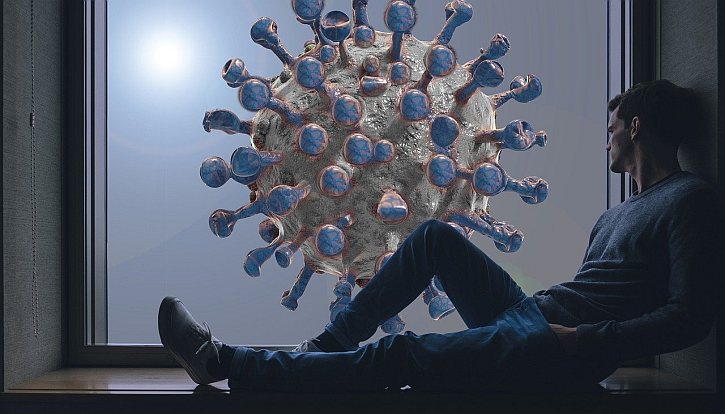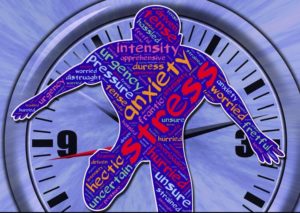People with mental illnesses have it especially hard. On the one hand, they struggle with the debilitating effects of their disease. On the other hand, they have to endure social injustice caused by stigma. There are far too many myths that even the sufferers of mental illness believe and that need to come to an end.
Here are 9 top mental health myths that need debunking.

-
Mental illnesses arenŌĆÖt real
A lot of people tend to react with hostility towards the mentally ill believing that they are just acting out for attention. Some also believe that if people wanted to, they could just snap out of it. The truth is mental illnesses are as real as it gets. Telling a person with depression to stop being depressed would be as inconsiderate as telling someone with cancer just to get over it. Besides this, there is plenty of physical evidence of the existence of mental disorders. Brain scans of people suffering from any form of mental illness show significant abnormalities in brain regions.
-
The mentally ill are violent and should be feared
Having a mental illness may increase the likelihood of acting violently in some individuals. However, the link between violence and mental illness is a complex one. Population studies show that the only a small amount of violent acts in all societies are committed by the mentally ill. Besides this, studies show that one n four mentally ill persons experience violence towards themselves in a given year.┬Ā An article published in the World Psychiatry journal explains that social exclusion that the mentally ill experience is a better predictor of violent behavior than the mental illness alone.
-
Depression is a normal part of aging
Depression is an illness that is common in older persons as a result of the challenges that come with old age such as ill health, career endings, and loss of social interaction. Undermining the suffering of older persons just because they are old is dehumanizing. Experiencing symptoms of depression such as chronically low mood, lack of energy, sleep problems, and suicidal ideation needs to be addressed no matter what the personŌĆÖs age may be.
-
People with mental illness are weak
Willpower has nothing to do with mental illness. Mental health problems can strike even the sturdiest among us. Stress is a frequent trigger for the first episode of mental illness, but how people react to stress will depend on their genetics, environment, and psychological makeup. Besides, instead of blaming a person for their inability to cope, maybe we should look for what is wrong in our environment.
-
Mental illness is rare
Mental illness is pretty common in modern society. In fact, an estimate of 20% of the U.S. population suffered from some form of mental illness in 2014 according to the National Institute of Mental Health. This number is probably higher as not everyone is aware they have a mental health problem.
-
People with mental illness are responsible for their condition
There is only so much in life that we can control. Part of being an adult is being responsible for oneŌĆÖs thoughts, emotions, and behavior. But when it comes to mental illness, control over these functions is lost. Take for example mental illnesses caused by brain injuries. Brain injuries sometimes cause personality changes that are confusing to the personŌĆÖs loved ones and that the sufferer cannot control due to brain abnormalities.
-
Depression is just a state of being sad
Although depressed individuals look and behave gloomy, their emotional state is far different from normal sadness. Sadness is an emotion, but many depressed people arenŌĆÖt able to feel an emotion, and this includes sadness as well. We need to start looking at depression as an abnormal way of thinking and feeling because this serious mental disorder is responsible for 90% of all suicides.
-
Mental illnesses canŌĆÖt be cured
With todayŌĆÖs medicine and psychotherapy, many mental disorders such as anxiety and depression can be easily treated. Others, like schizophrenia and personality disorders, require lifelong intervention. But generally, the symptom of most illnesses becomes less severe with treatment intervention.
-
Mental disorders are a result of chemical imbalances
Biological psychiatry only addresses half of the truth about mental illness. The human psyche is not fully understood and cannot be explained just with neurotransmitters and brain regions. Mental illness is a result of genetics, the environment, life experiences, upbringing, and other factors. All these factors taken together may or may not result in mental illness.
Mental illness is not measurable and visible through a microscope which is why it is so susceptible to stigma. Stigma is another burden people with mental illness have to carry and which does not make their problem in any way less severe. This is why we need to broaden our understanding of ŌĆ£invisibleŌĆØ illnesses.
 Margaux Diaz is Health and Fitness Expert. She has interest in building knowledge and self ŌĆō confidence┬Ā of people who really want to improve their Life by proper Health guide and stay fit for life time.┬Ā She is an inspirational writer and has written numerous Articles related to Health and Fitness on Consumer Health Digest. Connect with her on Facebook ,Twitter and┬Ā Google+.
Margaux Diaz is Health and Fitness Expert. She has interest in building knowledge and self ŌĆō confidence┬Ā of people who really want to improve their Life by proper Health guide and stay fit for life time.┬Ā She is an inspirational writer and has written numerous Articles related to Health and Fitness on Consumer Health Digest. Connect with her on Facebook ,Twitter and┬Ā Google+.



Leave a Reply